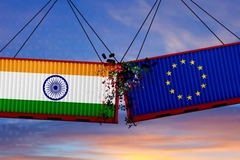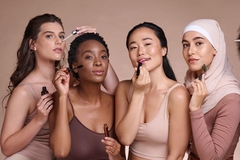Estée Lauder releases Social Impact and Sustainability report and eco-friendly packaging updates
Estée Lauder Companies’ (ELC) annual Social Impact and Sustainability report showcases the company’s activities around climate, energy, sustainable packaging, responsible sourcing and ingredient transparency.
“In fiscal 2024, we achieved several sustainability goals ahead of schedule, including surpassing our water withdrawal targets, publishing our new corporate ingredient glossary and reaching our palm oil objectives before our 2025 deadline,” says Nancy Mahon, chief sustainability officer at ELC.
“Our environmental and social efforts are integral — enabling innovation, value creation, and operational efficiency, while engaging with current and future talent,” adds Fabrizio Freda, president and CEO of ELC.
Other highlights of the report include employee experience and equity, well-being and safety and impactful social investments.

In addition, ELC published its 2024 Progress Update to its Climate Transition Plan, highlighting its efforts to address climate change. ELC’s latest strategic actions target reducing total GHG emissions across its value chain.
Reusable
At the end of fiscal 2024, nine of ELC’s brands offered at least one reusable packaging component for select products. For example, unisex fragrance brand Le Labo offers consumers in the US and UK refills for the eau de parfum glass bottles (50 mL and up) online and in select labs worldwide.
“With their personalized labels and elegant glass packaging, Le Labo’s fragrance bottles are worthy of keepsake status; refilling the bottles allows consumers to reuse and cherish their bottles for years,” details the brand.
Refillable
Refillable packaging allows a container to be used multiple times in conjunction with a replaceable secondary component, helping to minimize single-use and contributing to a circular economy. The trend has been gathering pace this year in new cosmetic launches.
One of ELC’s brand leaders in refillable packaging is Bobbi Brown, which minimizes waste with the design of its Extra Repair Moisture Cream Intense. When consumers polish off the last of this moisturizer, they can easily insert a refill pod into the original packaging.
In fiscal 2023, Estée Lauder transitioned its Luxury Fragrance collection to a recyclable and refillable glass bottle. According to the life cycle assessment results, purchasing the Luxury Fragrance in a recyclable glass bottle and one refill helped the company reduce emissions and water consumption by 20% after the initial purchase.
ELC says this product’s refillable bottle also helps to minimize packaging weight by 40%.
Recoverable
Recoverable packaging can be collected through take-back programs, diverting it from landfills and converting it into energy or recycled materials.
ELC says developing such programs is highly complex as they are subject to local recycling and waste-handling laws and infrastructure, and implementation requires comprehensive employee training.
“Despite this complexity, ELC continued to develop take-back initiatives in fiscal 2024, with certain brands expanding their programs to new markets,” says the company.
Today, brands including MAC, Aveda, Deciem, Bobbi Brown and Clinique offer take-back programs in select markets. “Back-To-MAC,” for instance, is a program that collects consumers’ used MAC packages for recycling, where possible.
Recycled
Aveda, for instance, is an industry leader with its development of paper-based, locally recyclable sachets for product samples.
Compared to plastic alternatives, ELC says the production of these paper-based sachets reduces water consumption by at least 36% and emits 37% fewer greenhouse gasses.
First launched in Europe and the UK, Aveda’s paper-based sample sachet is expected to roll out globally next year, making it the brand’s priority sampling packaging, where applicable.
In other sustainable packaging advances for the beauty sector, THG recently expanded its consumer recycling scheme in the UK that targets hard-to-recycle beauty and cosmetic packaging, helping brand partners offset new packaging waste fees. A Royal Mail doorstep collection service will soon allow consumers to recycle any brand’s cosmetic packaging at no cost.













